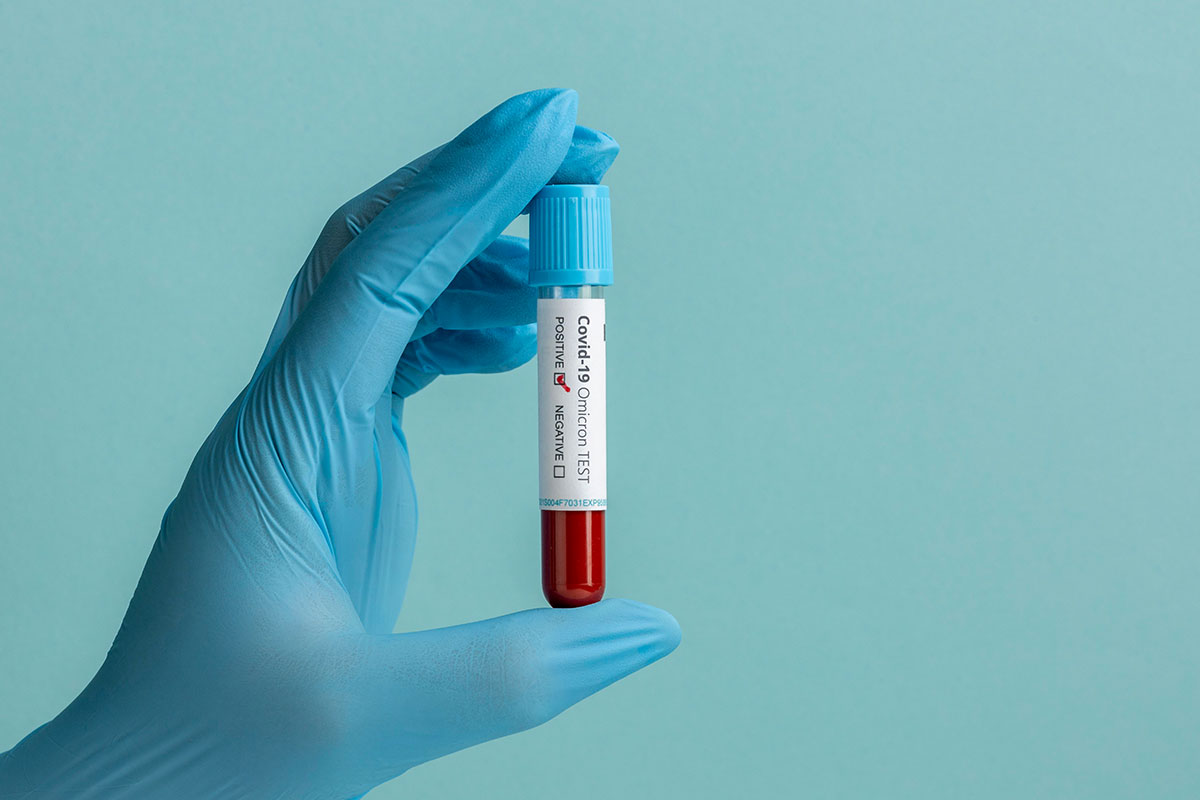
Blood Cancer- All You Need to Know
By Dr. Sumant Gupta in Bone Marrow Transplant (BMT) Cancer Haematology & BMT Medical Oncology
Mar 27, 2023
A kind of cancer that has a detrimental effect on your blood cells is called blood cancer. The production of blood cells by your body and the functionality of those cells are both impacted by blood cancer.
Your bone marrow, the soft, sponge-like substance in the middle of your bones, is where the majority of blood cancers begin. Normal blood cells regulate bleeding, transport oxygen throughout the body, and fight infection. If you have blood cancer, abnormal blood cells exceed normal blood cells, which leads to a cascade of illnesses.
Blood cancers can be classified into three categories:
- Leukaemia – It is a form of cancer that develops in your blood and bone marrow and is brought on by the fast production of abnormal white blood cells.
- Lymphoma – It is a distinct kind of blood cancer that impacts the lymphatic system, which eliminates extra fluid from the body and generates immune cells. The type of white blood cells – Lymphocytes are one kind that fights infection.
- Myeloma – It is a cancer of the plasma cells. The type of white blood cells – Plasma cells help your body create antibodies that fight infections and illness. Your immune system is weakened, and you become more susceptible to infection as a result of myeloma cells that prevent the body from manufacturing antibodies regularly.
Causes of Blood Cancer
DNA alterations (mutations) within blood cells are the root cause of all blood cancers. Blood cells start acting abnormally as a result of this. These alterations are typically related to factors outside of our control. Despite the fact that the actual cause of blood cancer is mostly unknown, there are several factors that might influence your risk, including:
- Age
- Sex
- Weakened immunity
- Family history
- Ethnicity
- Exposure to radiation or chemicals
- Blood conditions like myelodysplastic syndrome
- A few medical disorders and treatments
Symptoms of Blood Cancer
Depending on the condition, blood cancer symptoms might include any or all of the following:
- Fever
- Fatigue
- Chills
- Weakness
- Weight loss
- Bone and joint pain
Who is at risk for blood cancer?
Although it is thought that a mix of hereditary and environmental factors contribute to the development of blood cancers, the risk factors for blood cancer are not entirely known. When a person smokes, is exposed to radiation, or is exposed to certain chemicals, some types of blood cancers are more likely to develop. Additional risk factors for lymphomas and leukaemias include infections with HIV, Epstein-Barr virus, and human T-cell lymphoma/leukaemia virus.
How is Blood Cancer diagnosed?
A physical examination to assess your general health is usually the first step in the diagnosis. Your doctor will review your medical history, perform an examination, and look for any injuries or infection signs in your body’s lymph nodes. Blood cancer may be diagnosed using a variety of techniques and procedures. The sort of blood cancer you may have may determine what you need.
- Leukaemia – A complete blood count (CBC) test, which can detect abnormal ratios of white blood cells to red blood cells and platelets, will be performed by your doctor.
- Lymphoma – Your physician will have to do a biopsy, which involves removing a tiny amount of tissue to be studied under a microscope. In rare circumstances, your physician could additionally prescribe an X-ray, CT, or PET scan to look for enlarged lymph nodes.
- Myeloma –To find the substances or proteins created as a result of myeloma development, your doctor may request a CBC or other blood or urine tests. Bone marrow biopsies, X-rays, MRIs, PET scans, and CT scans can occasionally be used to determine the existence and degree of myeloma spread.
Treatments for the Blood Cancer
The course of treatment for blood cancers is determined by the type of blood cancer, your age, how quickly it is growing, where it has spread, and other variables. Leukaemia, lymphoma, and multiple myeloma are among common blood cancers that are treated with the following:
- Stem cell transplantation – Healthy stem cells that produce blood are infused into the body during a stem cell transplant. Bone marrow, circulating blood, and umbilical cord blood are all sources of stem cells.
- Chemotherapy – Anticancer medications are injected into the body to stop the growth and eradicate cancer cells.
- Radiation therapy –Radiation treatment can be used to kill cancer cells or to ease discomfort or pain. Before a stem cell transplant, it could also be administered.
Life after Blood Cancer Treatment
A considerable number of patients can have a successful blood cancer treatment. However, following successful chemotherapy, patients should have a healthy lifestyle, consistently follow their doctor’s advice, and undergo routine tests and physical examinations. There may be challenges following chemotherapy, which should be discussed with the doctor and properly treated. Pay attention to the state of your emotions as well.
It makes sense if you’re feeling down about the circumstances. If your grief or depression lasts longer than two weeks or affects your ability to go about your everyday activities, speak with your doctor and get the much-needed help.







